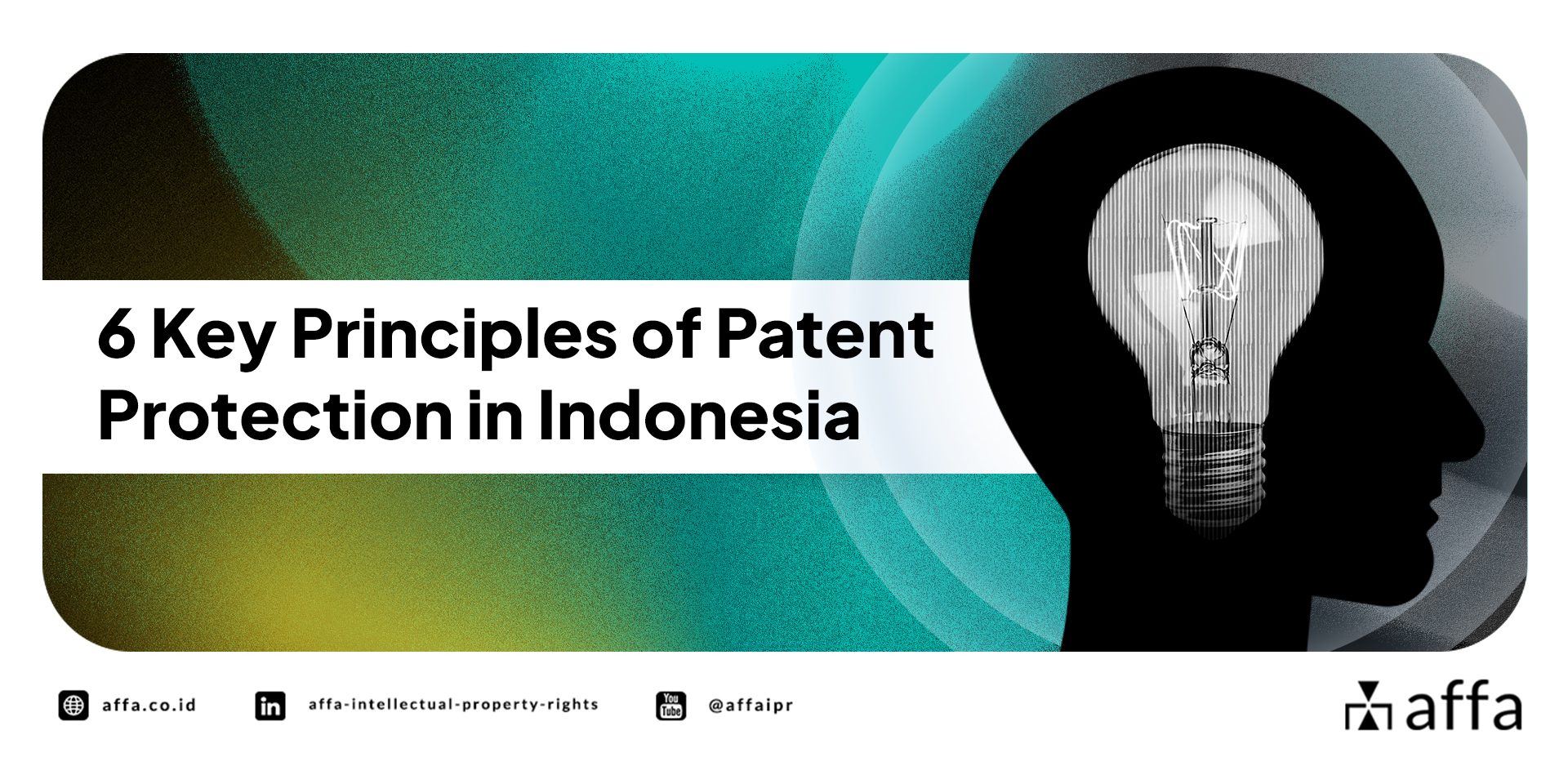Through Law Number 65 of 2024 on Patents, the Indonesian Government has revised the definition of “invention” to mean an inventor’s idea manifested in solving a specific problem in the field of technology, which can take the form of a product or process, or the improvement and development of an existing product or process.
Meanwhile, a Patent is an exclusive right granted by the state to an inventor for an invention that meets the criteria of patentability, namely novelty (new), inventive step, and industrial applicability. For Utility Models, the requirements include at least novelty, incremental improvements to existing products or processes, practical utility, and industrial applicability.
If you are an inventor, a Patent will protect your invention by granting you legal rights, enabling you to enjoy the economic benefits of your invention.
However, six key principles form the foundation of Patent protection and are crucial for safeguarding technological innovations and inventions. These principles are:
- First-to-File:
This principle states that the first party to file a Patent application is granted Patent rights, not the first to invent or use it. Therefore, Patent owners must file their applications as soon as possible. - Patent Information:
Every Patent application must include complete information about the invention, such as descriptions, claims, and drawings illustrating how the invention works. This information will be published once the application is approved, allowing the public to refer to it and encouraging further technological advancements. - Protection Is Granted Only by Application:
Patents are only granted if the inventor or an authorized party submits an official application. Without an application, Patent rights will not be awarded, even if the invention meets patentability requirements. - Obligation to Pay Annual Fees:
After a Patent is granted, the Patent holder must pay annual fees to maintain the Patent rights. Failure to pay these fees can result in the cancellation of the Patent, making the invention part of the public domain. - Universal Substantive Examination:
Every Patent application undergoes a substantive examination to ensure the invention meets the requirements of novelty, inventive step, and industrial applicability. This process ensures that only truly innovative inventions are granted Patent protection. - Territorial Protection:
Patent rights are territorial, meaning protection is only valid in the country or region where the Patent is registered and approved. To secure protection in other countries, the inventor must file separate Patent applications in those countries.
By understanding these six principles, innovators and industry players can take the necessary steps to legally protect their inventions and maximize their economic potential.
You might also want to read:
Indonesia’s Patent Law Amendment: Excluded Inventions and Change in Novelty Grace Period
Should you need more information about Patent protection in Indonesia or globally, feel free to contact us at [email protected].








1 Comment